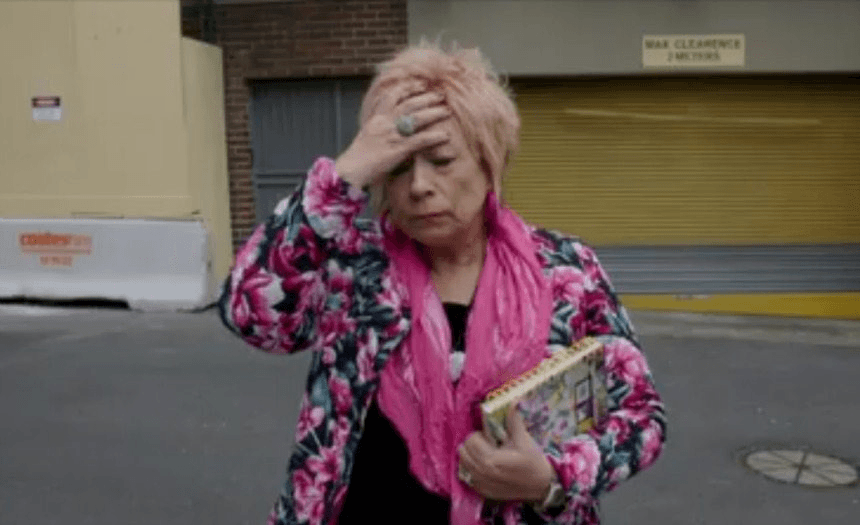New Zealand’s most fucked up show is back on the air after a merciful hiatus. Duncan Greive says that Sensing Murder is a crime against television – and now, due to a big format change, even worse than it was the first time around.
Sensing Murder, one of the most preposterous shows in New Zealand television history, made an unwelcome return from the grave last night. In all its years on air the show’s psychics never did find a body or murderer, so it’s pretty shameful that the show itself is the one corpse they managed to reanimate. And despite all those years dead and buried Sensing Murder has hardly changed – aside from a small format shift which somehow makes a bad show much worse, the formula is exactly the same.
The same lurid historic murder, dramatically recreated, interspersed with interviews with still-grieving friends and relatives. The psychics are the same: Sue Nicholson has not aged a day and may in fact have been cryogenically frozen inside the Sensing Murder props room. And the sense of major exploitation is the same: tearful siblings of Joan Wech, being exploited by a TV channel and a production company and a pair of psychics into thinking a tragic family mystery is going to be solved.
Because, huge spoiler, psychics aren’t real. It’s a cruel fraud of a profession, practised by (charitably) the confused, preying on the hopelessly vulnerable. Sensing Murder 2.0 is maybe hinting at a higher purpose by repeatedly going to one relative’s hope that the publicity might help shake killer loose (the implication being that he has little faith that the psychics will). But the grotesque sham that is the premise is still essentially all there is.
This week, we’ve got the death of Joan Wech, a woman whose backstory gets a yawning half hour, while somehow barely filling out more than a pencil sketch. She was a young New Zealand woman who followed an ex-boyfriend to Sydney in the early ‘70s, before being stabbed to death in an inner city service station.
It’s awful, and was big news at the time, with some vile reporting (“I SLEPT WITH MURDER GIRL” shrieks one contemporary headline). The family were devastated, and her mother died nine years later having never really recovered, we hear. But due to both the passage of time and some fairly slight research, the crime itself is not particularly painstakingly recounted. We get a lot of slow pans across old black and white photos, which has the unfortunate effect of making all the old men in the old photos look excatly like murderers. More effort mapping the crime, and less on the stage-y re-enactments, would definitely help.
All this takes forever, elongating brutally the time until we meet the psychics, who in their blundering vagueness are at least very funny to watch. It is probably worth the wait: hearing them talk about the victim’s characteristics again is truly fascinating. She was: a “clever person”; a “free spirit”; “full of life”; “New Zealand born”. The location? “In the city”…“I’m getting cars”. Which is true of almost every victim and most murders. And because they have an epic eight hours to mutter away while stroking the photo, the edit is inevitably going to find little revelations in the scant minutes they’re featured on screen.
Then the big and only change comes, and it’s a real shitter. The original Sensing Murder took as long to meander to the mediums and their magnetic conjecturing. But it devoted as long again to the work of the psychics (the episodes were 90 minutes long – it was truly ground breaking television). Now though, after an hour Shortland Street’s Sarah Potts comes in, telling us to tune in next week for the shocking conclusion.
Next week?! We sat through all your crappy am-dram and bad documentary, and you cut off the payoff after a few short minutes? The format is now broken in two, which essentially guarantees that every second episode will be an excruciating dog. Given all that’s wrong with this immensely popular but morally bankrupt franchise, removing its ability to be reliably entertaining on a weekly basis is the real crime.
Click here for the rest of our Murder Week coverage, including Paul Casserly on Sensing Bullshit and Alex Casey on a night with Sue Nicholson.



